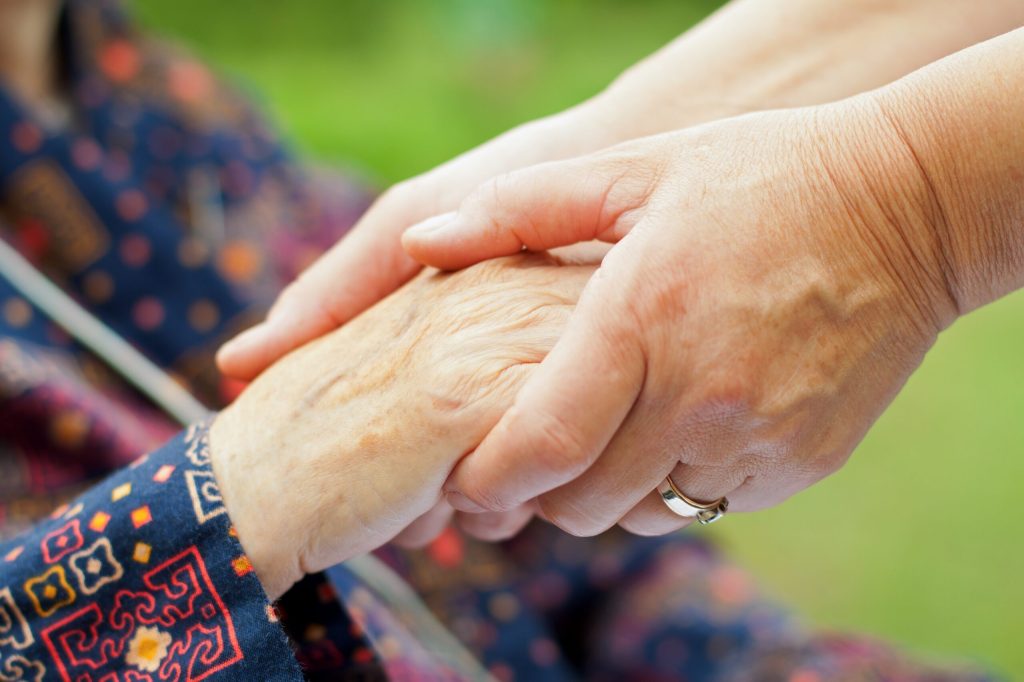
What It Takes to Care for a Family Member with ALS
How to cope as an ALS caregiver
I wasn’t involved in Uncle Dick’s care, but can now appreciate what my aunt and cousins went through. I think they’d agree that the family caregiver’s experience “is certainly as intense and all-consuming as that of the person with the disease,” as described by the Muscular Dystrophy Association (MDA)’s ALS Division. Here are my relatives’ recommendations to fellow ALS caregivers (supplemented by tips from the MDA, Family Caregiver Alliance and ALS Association):
- Get help. Caregiving is a full-time job. It’s exhausting, especially if you’re unable to sleep through the night. As the disease progresses, outside caregivers will be essential to provide respite. Accept offers from friends who volunteer for certain tasks and activities, and keep a schedule of who’s doing what.
- Manage nutrition. It’s important for the person with ALS to get sufficient protein, vitamins and minerals, but the most crucial dietary factor is consuming adequate calories to prevent severe weight loss, which further compromises the body. Don’t neglect your own meals and hydration either.
- Be patient. Behavioral changes range from mild to severe and may include depression. Some people with ALS have trouble making decisions about their care and activities and may require someone to act on their behalf. The patient may not be able to follow instructions regarding therapy or exercises, and may make “unfiltered” comments.
- Simplify communication. Speak slowly. Break sentences in short phrases and ask yes/no questions. And don’t be afraid to show a sense of humor. “Laughter is the only drug that works on ALS, and it’s free,” the MDA points out.
- Educate yourself and set reasonable expectations. If the patient seems frustrated, irritable or withdrawn when interacting with you, he or she may not be able to understand your request or plan. You may need to rework your approach.
- Find a constructive coping mechanism. Set aside some time to help yourself renew and refresh. Exercise can alleviate stress. Some caregivers keep a journal to work through their private feelings. Others choose to share everyday observations, such as a scene outside the patient’s window. Soothing music tends to have a calming effect on all involved.
- Appreciate the benefits of caregiving. Reflect on the purpose you’re fulfilling in providing love, dignity, security and compassion to your family member.
Caregiver thoughts
Those who best knew my uncle describe him as a strong, quiet person, who cared and provided for the entire family. He had an unwavering faith even when times were tough. That’s a steadfast legacy for all caregivers, their families and friends as we hope for breakthroughs in ALS treatment and pray for an eventual cure. Frank Irving is a Philadelphia-based writer specializing in healthcare, technology and business topics.


